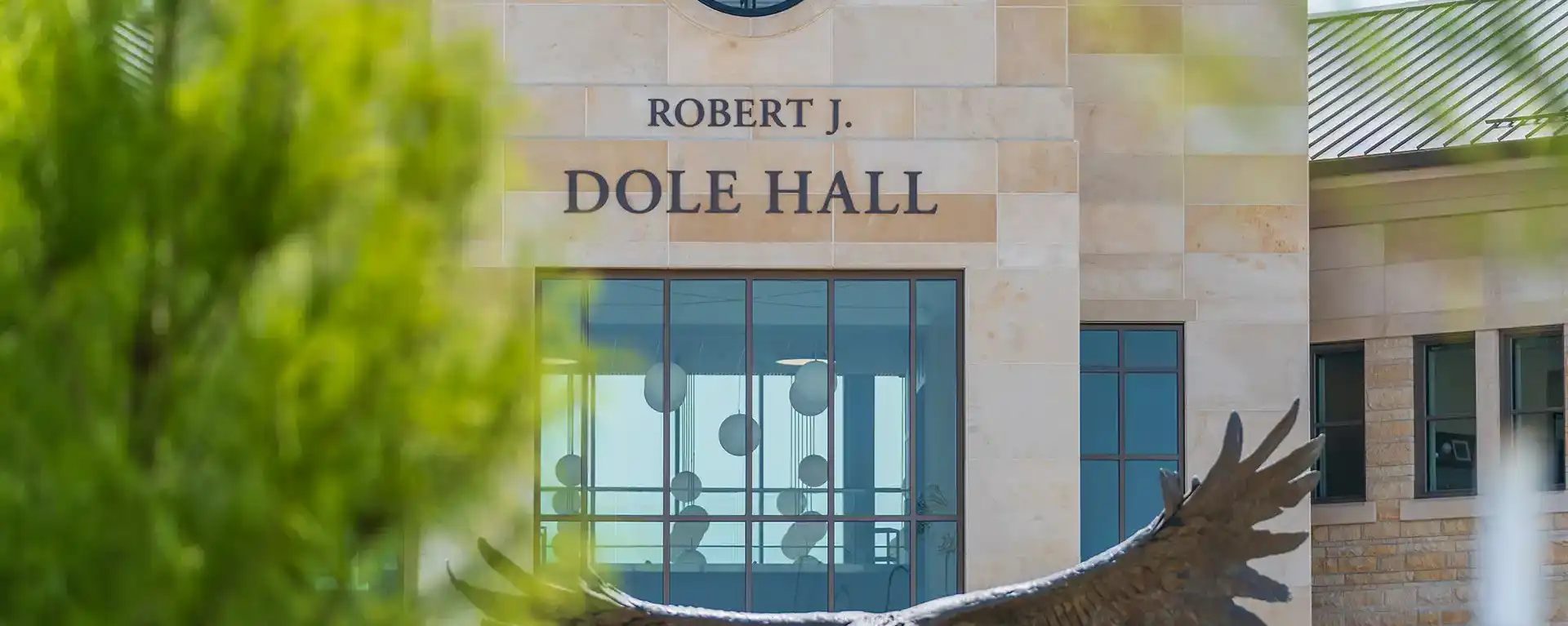

For more than a decade, the Washburn Law Journal has partnered with the Washburn Law's Robert J. Dole Center for Law and Government to present an annual symposium.
2025 Symposium: "Universal Rights v. Local Realities: Advancing Human Dignity Rights in an Uncertain America"

Since 1978 the Wichita law firm of Foulston Siefkin has generously sponsored the Foulston Siefkin Lecture Series. This lecture series brings a prominent legal scholar to Washburn University School of Law to challenge and enhance the legal thinking of our students and faculty. The visiting scholar delivers a lecture and also provides an article for the next volume of the Washburn Law Journal.
2025 Lecture: "Cruelty, Blame, and Survival: Homelessness in the Age of Grants Pass v. Johnson"Speaker: Ron Hochbaum, Associate Clinical Professor of Law, Director, Buccola Family Homeless Advocacy Clinic, University of the Pacific McGeorge School of Law

The John D. Ensley Memorial Writing Award is presented semi-annually to the top memo writer in the Washburn Law Journal writing competition, honoring John D. Ensley, a 1983 graduate whose dedication to legal writing had a lasting impact on the profession. Established in 2000, the award commemorates Mr. Ensley’s distinguished career and contributions to commercial, government, real estate, securities, and educational law. As a partner at Goodell, Stratton, Edmonds and Palmer, and a member of various bar associations, Mr. Ensley’s legacy continues to inspire excellence in legal writing at Washburn Law.
Jack Hamilton
Caleb Haselhuhn
Ruby Howell
Josephine Phillips
Madison Squibb
Simon Stegall
Jamie St. Viva
Luke Zenger
Kyla Barry
Cayd Bezanson
Forrest Brungardt
Brenden Clerico
Kilian Cox
Mark Early
Caleb Gregg
Sieana Hall
John Havel
Trey LaRue
Lauren Maize
Angel McLees
Kaleb Moural
Jeffrey Pollard
Grace Sanford
Madison Stumma
Maia Snelson Allinder
Sterling Thomsen
Jenna Thornton
Gideon Wiley
The Washburn Law Journal publishes one volume consisting of three issues per academic year. Subscription rates are $30.00 for United States residents and $35.00 for residents outside the United States. A limited number of individual issues of Volume 49 are available, as published, for $15.00 each. Price quotes are inclusive of all shipping and handling charges, and PREPAYMENT is required for all orders.
If you have questions concerning subscriptions, please contact: Washburn Law Journal, Washburn University School of Law, Attn: Subscriptions, 1700 SW College Ave., Topeka, KS 66621, email at journalclaims@washburnlaw.edu or 785.670.1692. Whether you send your subscription request via regular mail or email, please include the following information: Subscriber’s name, shipping address, billing address (if different), contact person, and phone number.
The publisher of the Washburn Law Journal is Joe Christensen, Inc., 1540 Adams Street, Lincoln, Nebraska 68521, or toll free at 800.228.5030.
Non-received issue claims should be directed to Washburn Law Journal, Washburn University School of Law, Attn: Claims, 1700 SW College Ave., Topeka, KS 66621, email at journalclaims@washburnlaw.edu or 785.670.1692.
NOTE: Non-received issue claims from paid subscribers can only be honored for a 90-day period from the original mailing date of the issue claimed.
Questions regarding the availability and purchase of back issues (beginning volume 23) must be addressed to William S. Hein Co., Inc., 1285 Main Street, Buffalo, New York 14209 or call toll free at 800.828.7571.